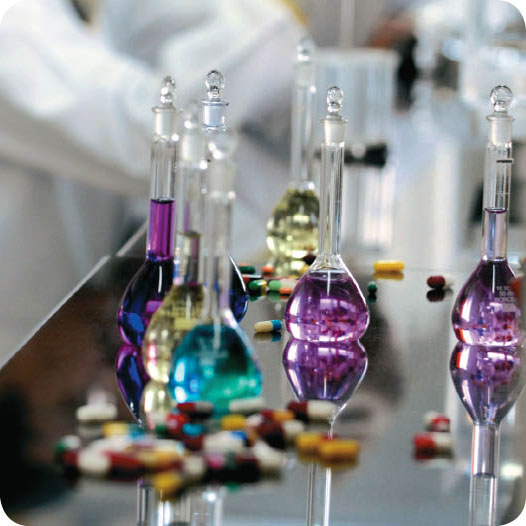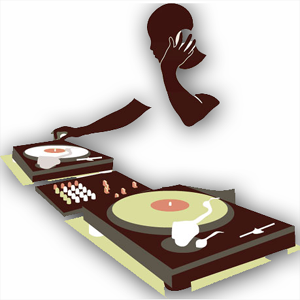
drugstr
Central, NJ
Male, 61
I have worked as a drug discovery scientist for over 30 years performing experiments to help identify novel chemical compounds for their potential in treating diseases in the areas of infection, inflammation and cardiovascular disorders. I have a good familiarity with the entire process from discovery to safety to clinical trials and even marketing. Ask me about the business of Big Pharma. I’m happy to comment on any and all hot-button issues. My opinions are quite often not pro-business.
Again, not really a pharma question. The CDC recommends a mask with two or more layers of breathable fabric. Wear one anytime you're around people not in your household. I wear inexpensive, disposable, 3-layer surgical masks available online.
First there's development, then testing, then approval, then manufacture, then distribution and then WE have it. For COVID-19 most are still in development and a handful are now in testing with a few in late stage testing. Normally these steps would take a couple of years, but acceleration has been inserted in a couple of places, i.e. government funding of development, political pressure on approval (maybe), and manufacture on spec. These things could shave off several months. Also, if a vaccine works very well, interim analysis may reveal significant efficacy and safety and thus early approval. There are still unresolved hurdles to distribution and recipient selection. I think most folks should not expect to get it until next year. Early I hope.
This is complicated and not really a pharma question. More important than which body part is sampled is what exactly is being measured with each type of test and the reason why you seek testing. If you think you've been exposed wait a couple of days and get the PCR test (nose swab). It is sensitive enough to pick up the virus even before you become infectious to others, sick or asymptomatic. Unfortunately, test results arrive several days later so quarantine until then and hope for a negative. Antigen test - this is the best test if you're actually feeling sick. It's less sensitive than PCR, but if you're truly sick with COVID it will tell you in less than an hour. A rapid, inexpensive, self test based on this technology would be a game changer. Imagine, for example, testing every kid every morning before school. Antibody test - this blood test detects anti-COVID antibodies. A positive indicates that you've had the disease (or in the future, the vaccine). It's not useful for determining if you're sick or infectious because it remains positive long after recovery. It's useful for identifying persons suitable for convalescent plasma donation and possibly indicates some measure of immunity to reinfection.
In my view an OTC medication must satisfy two criteria. First, it must have a very well-established, excellent safety profile and second, it must be a proven remedy for a condition that the user can self-determine. For example, headache, heartburn, constipation, etc. Conditions like high BP, high cholesterol, and diabetes are not reliably monitored by patients and are thus appropriately not OTC. There are certain prescription medicines that treat self-determinable conditions that I believe could be OTC so long as they are dispensed by a professional capable of providing safety guidance for their use. Call it “pharmacist prescribing.” My list would include drugs for erectile dysfunction, anxiety, sleep aids, acne and maybe certain urinary tract targeted antibiotics. Ordinarily, physicians prescribe these drugs with advice only and no further monitoring.
Bar Mitzvah DJ
 What's the craziest thing you've seen at a bar mitzvah?
What's the craziest thing you've seen at a bar mitzvah?
Employment Lawyer
 Can a man sue if he's denied a job at Hooters?
Can a man sue if he's denied a job at Hooters?
CPR Trainer
 Why does the 'official' CPR method change from time to time?
Why does the 'official' CPR method change from time to time?
End which part? International cartels and their networks in the U.S.? No. Criminalization of users? Yes, unless they commit other serious crimes. Treat addiction as a medical problem with therapy and/or safe drugs with supervision.
Opioids have been around for a very long time. Their usages, i.e. pain relief and pleasure, historically have not changed. There always have been overdose deaths, sad as they were, but what’s different today is the sheer number of them. The causative issues that have been identified are the bloated and reckless supply chain of pharmaceutical grade pills and the incorporation of deadly fentanyl into the street drugs. There are no simple solutions. Government action against irresponsible manufacturers and distributers, tighter regulation of prescriptions, and the availability of rescue medicines in the field, while sensible, have actually only reduced deaths by a few percent. Opioids are very effective for pain relief, but because they are much less expensive than more sophisticated medical procedures like pain management and surgery, patients opt for them and are thus at risk of developing addiction, advancing from relief to pleasure to danger. One solution to that might be for insurance companies to fully cover non-drug medical intervention and thus lower the cost barrier to safe care. It’s a win-win. Patients live and companies continue to receive their premiums. I see no remedy for the dangers of illicit opiates short of the progressive idea of establishing clinics where addicts are maintained with clean materials. Perhaps the opioid blockers could be available to addicts to carry around themselves rather than restricting their use to first responders and ERs. Hopefully, one day science may discover the molecular basis for addiction and invent a way to control it.
-OR-
 Login with Facebook
Login with Facebook (max 20 characters - letters, numbers, and underscores only. Note that your username is private, and you have the option to choose an alias when asking questions or hosting a Q&A.)
(A valid e-mail address is required. Your e-mail will not be shared with anyone.)
(min 5 characters)
By checking this box, you acknowledge that you have read and agree to Jobstr.com’s Terms and Privacy Policy.
-OR-
 Register with Facebook
Register with Facebook(Don't worry: you'll be able to choose an alias when asking questions or hosting a Q&A.)